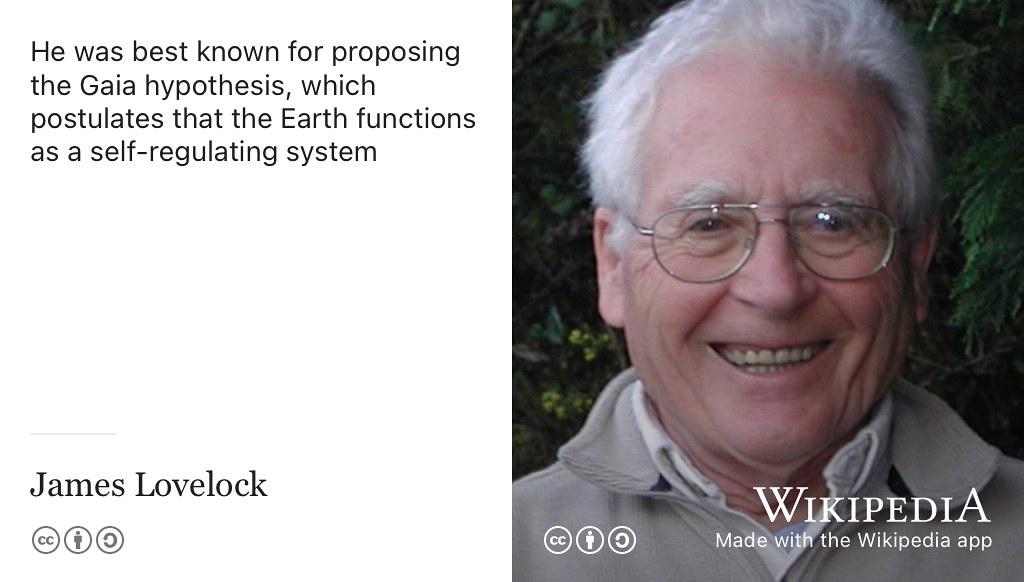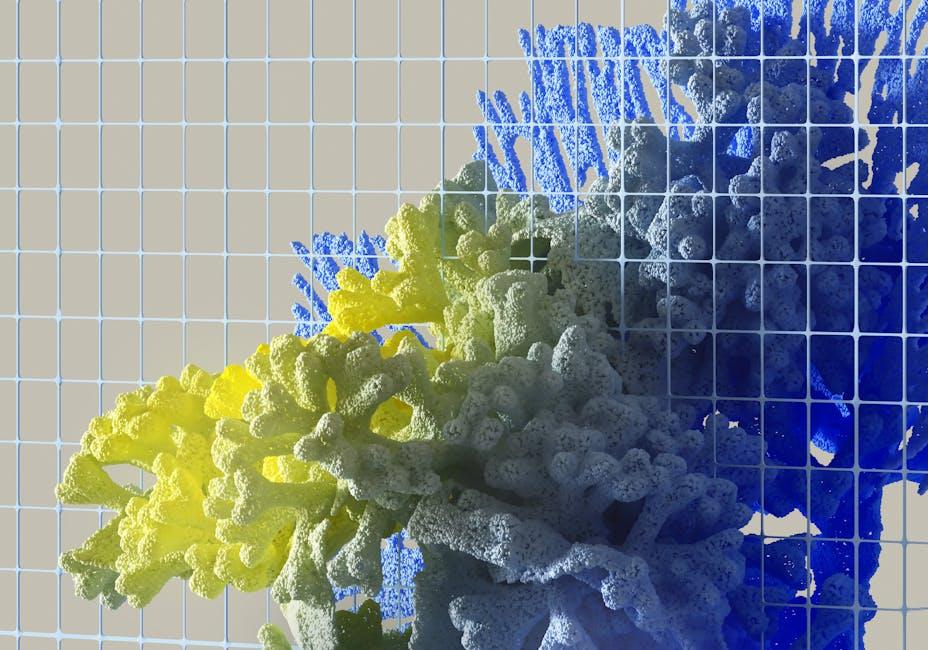In a world where technology evolves at a staggering pace, James Lovelock’s innovative insights into artificial intelligence have captivated minds and sparked fascinating discussions. Delving into the realm where the capabilities of AI intersect with our understanding of the natural world, Lovelock’s exploration offers a thought-provoking perspective on the future landscape of technology and its profound impact on society. Join us on a journey through the visionary insights of James Lovelock as we delve into the intriguing world of AI with a touch of his unique perspective.
Table of Contents
- Unveiling James Lovelock’s Visionary Insights on AI
- Exploring the Intersection of Gaia Theory and Artificial Intelligence
- Analyzing the Ethical Implications of AI Through James Lovelock’s Perspective
- Proposing Sustainable Solutions for AI Development Inspired by James Lovelock
- Q&A
- Wrapping Up

Unveiling James Lovelock’s Visionary Insights on AI
James Lovelock’s insightful perspectives on AI delve into the intersection of technology and nature, offering a unique blend of futuristic vision and ecological mindfulness. His visionary ideas challenge conventional thinking and invite us to reimagine the role of artificial intelligence in the world.
Exploring Lovelock’s views on AI opens up a world of possibilities where man and machine, science and spirituality, converge harmoniously. His articulated concepts inspire contemplation on the essence of consciousness, the evolution of intelligent systems, and the symbiosis between humanity and the digital realm.
Exploring the Intersection of Gaia Theory and Artificial Intelligence
James Lovelock once envisioned a world where the intricate harmony of nature and technology could blend seamlessly. The fusion of Gaia theory and artificial intelligence unveils a realm of possibilities, where the wisdom of the Earth intersects with the innovation of human creation. This symbiotic relationship between the organic and the synthetic sparks a dialogue on coexistence and collaboration like never before.
Key Points:
- Enhancing environmental monitoring through AI-powered sensors.
- Applying Gaia principles to optimize machine learning algorithms.
- Exploring ethical considerations in AI development within the context of Gaia theory.

Analyzing the Ethical Implications of AI Through James Lovelock’s Perspective
In the realm of artificial intelligence, James Lovelock’s perspective sheds a unique light on the ethical considerations that accompany the rapid advancements in AI technology. Lovelock, known for his Gaia theory emphasizing Earth as a self-regulating system, provides a fascinating lens through which to explore the impact of AI on our interconnected world.
Lovelock’s holistic view encourages us to contemplate how AI development influences not only human society but also the delicate balance of nature. Through his lens, we can delve into questions about the sustainability of AI systems, the ethical responsibilities of AI creators, and the potential consequences of AI on the environment. This fresh angle invites us to reevaluate our approach to AI innovation and its implications on both humanity and the planet we call home.
Proposing Sustainable Solutions for AI Development Inspired by James Lovelock
Reflecting on James Lovelock’s visionary perspective, we are urged to consider sustainable solutions for the advancement of artificial intelligence development. Embracing Lovelock’s Gaia theory, which portrays the Earth as a self-regulating organism, we can draw parallels to the delicate balance required in AI innovation.
By implementing eco-conscious practices in AI design and deployment, we can cultivate a harmonious coexistence between technology and the environment. Prioritizing energy efficiency, minimal carbon footprint, and ethical data usage can pave the way for a future where AI thrives in balance with nature.
Q&A
Q: Who is James Lovelock, and what is his connection to AI?
A: James Lovelock is a renowned British scientist and environmentalist best known for proposing the Gaia hypothesis, which suggests that the Earth is a self-regulating organism. His connection to AI lies in his views on artificial intelligence and its potential impact on the future of our planet.
Q: How does James Lovelock perceive the role of AI in environmental conservation?
A: Lovelock sees AI as a powerful tool that can help us better understand and protect the environment. He believes that AI technology, when used responsibly, can aid in monitoring ecosystems, predicting climate changes, and devising sustainable solutions for a more harmonious coexistence with nature.
Q: What are the main concerns raised by James Lovelock regarding the integration of AI in society?
A: While Lovelock acknowledges the benefits of AI, he also raises concerns about its potential risks. He warns against the unchecked development of AI, emphasizing the need for ethical standards and regulations to prevent unintended consequences that could harm both the environment and humanity.
Q: How does James Lovelock envision a future where AI and environmental preservation go hand in hand?
A: Lovelock envisions a future where AI works in synergy with nature, acting as a supportive ally in our efforts to protect and restore the planet. By harnessing the power of AI for sustainable practices and conservation initiatives, he believes we can achieve a balance that ensures the well-being of both ecosystems and society.
Wrapping Up
As we dive deeper into the realm of artificial intelligence through the lens of James Lovelock’s perspectives, it becomes evident that the intersection between technology and the environment holds a vast array of possibilities and challenges. Embracing the synergy between AI and our planet’s ecosystems can pave the way for innovative solutions and sustainable advancements. Let us continue to explore, question, and envision a future where harmony between AI and nature thrives, guided by the wisdom of pioneers like James Lovelock. Join us in shaping a future where intelligence, both artificial and natural, coexist in a delicate balance for the betterment of our world.



0 Comments